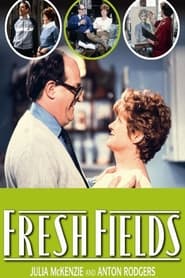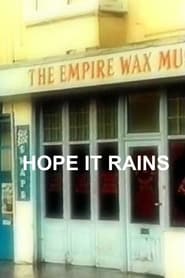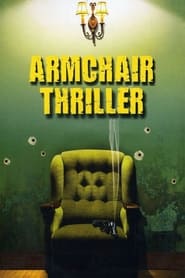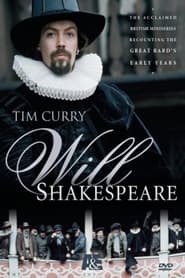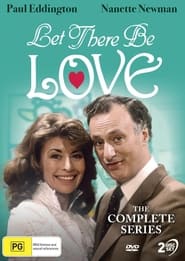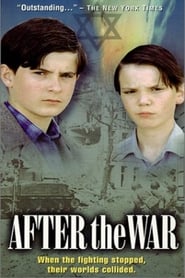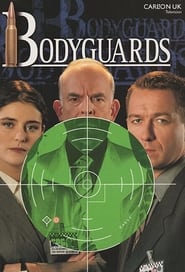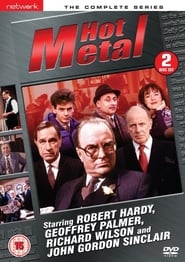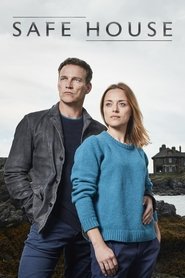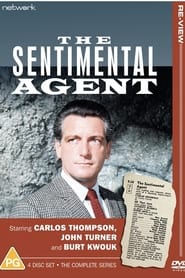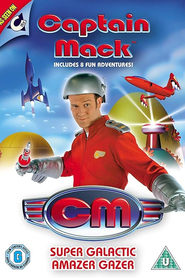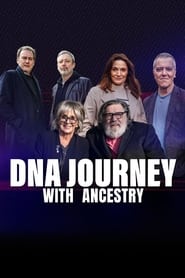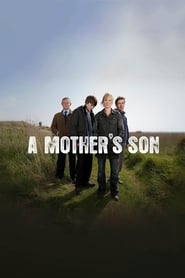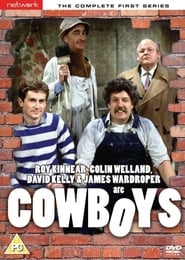Itv1 TV Series - Page 32
-
Fresh Fields
1984
star 6.7Fresh Fields is a British situation comedy written by John T. Chapman and produced by Thames Television for ITV between 7 March 1984 and 23 October 1986. A ratings success at the time, the show is well remembered for its opening titles featuring a silhouette of a person in a rocking chair. It stars Julia McKenzie and Anton Rodgers as Hester and William Fields, a devoted middle-class couple with an idyllic suburban lifestyle. William works while Hester keeps home. The crux of the show was that she was always looking to try new hobbies or find ways to improve her life, much of which exasperated her hard-working husband. The family home had a granny flat attached, in which Hester's mother Nancy lived. She was divorced from Hester's father Guy although remarried him as the series progressed. The couple had a daughter called Emma who frequently telephoned but never appeared. Her husband Peter did appear often. They later had a son — the Fields' first grandchild — whom they named Guy, after his great-grandf -
Hope It Rains
1991
star 6After the deaths of her parents, Jace moves in with her godfather Harry, who runs a waxwork museum in a seaside town. He hopes the weather will change for the worse to attract custom. -
Armchair Thriller
1978
star 4.2Armchair Thriller is a British television programme, broadcast on ITV in two series in 1978 and 1980. Owing something to some of the off-shoots of the earlier Armchair Theatre, the new series used scripts adapted from published novels and stories. Although not properly a horror series it included several supernatural elements. Armchair Thriller was produced by Thames Television, but it included serials made by Southern Television. The format was of a twice weekly 25 minute episodes, usually screened on a Tuesday or Thursday at 20:00-21:00. -
Life of Shakespeare
1978
-
Let There Be Love
1982
star 7Let There Be Love is a British sitcom which aired for two seasons from 1982 to 1983. It was created by the sitcom writing team of Johnnie Mortimer and Brian Cooke, and it starred Paul Eddington, Nanette Newman and Henry McGee. It was made by Thames Television for the ITV network. -
After the War
1989
star 6John Madden's sweeping drama After the War tells the tale of a quarter-century relationship between two men who share a similar wartime experience and a similar religious background. Michael Jordan grew up in a well-heeled British family, while Joe Hirsch spent much of his childhood on the run from the Nazis. The two become friends when they are both enrolled at the same school in 1942. They survive anti-Semitic taunts together. Joe grows into a powerful media figure, while Michael becomes a respected man of the arts. The film charts a quarter-century of their history together, detailing a relationship that is equally affectionate and hostile. -
Bodyguards
1997
Bodyguards
1997
Bodyguards is a British television series that focuses on the cases of a specialized bodyguard unit called the Close Protection Group in service of the UK government. The lead cast members were Sean Pertwee as Ian Worrell and Louise Lombard as Liz Shaw. Sean Pertwee's Father, Jon Pertwee, also starred next to a character called Liz Shaw in one of the television shows he is best known for - Dr. Elizabeth Shaw was his first companion when he played the Third Doctor in Doctor Who. A pilot episode, featuring Josette Simon as a visiting dignitary, was broadcast in 1996. One series of six episodes followed, in 1997. -
Hot Metal
1986
star 5.8Hot metal is a London Weekend Television sitcom about the British Newspaper industry broadcast between 1986 and 1988. The daily crucible, the dullest newspaper in Fleet Street, is suddenly taken over by media magnate Terence "Twiggy" Rathbone. Its editor Harry Stringer is 'promoted' to managing editor, and is replaced in his old job by Russell Spam. Spam then takes the paper shooting downmarket and turns the crucible into a sensation seeking scandal rag, very much in the style of the British tabloids of the 1980s. He is helped along by his ace gutter journalist, Greg Kettle, who intimidates his tabloid victims by claiming to be "a representative of Her Majesty's press" and produces stories such as accusing a vicar of being a werewolf. Throughout the first series, a running plot involved cub reporter Bill Tytla gradually uncovering an actual newsworthy story that went to the very heart of government. Written by David Renwick and Andrew Marshall, it is very much a continuation in style from their previous sitcom Wh -
Chris Tarrant's Great Pretender
2007
Chris Tarrant's Great Pretender was a British daytime game show airing on the ITV network, presented by Chris Tarrant. The show aired from 5 November to 14 December 2007. The shows was broadcast Mondays to Fridays, generally at 5:00-6:00pm on ITV and STV; and 4:30-5:30pm on UTV. -
Safe House
2015
star 6.4Former police officer Robert and his wife Katy left city life behind them after Robert was injured, whilst trying to protect a witness in his care. The witness, Susan Reynolds was fatally shot. Robert has been struggling with the guilt he feels over the death of Susan. In a bid to put the past behind them, Robert and Katy now run a guest house, hidden away in the idyllic Lake District. A surprise visitor turns up, DCI Mark Maxwell, an ex-colleague and old friend. He suggests that the guest house is perfectly positioned to operate as a safe house, Robert is tempted but will Katy agree? -
The Sentimental Agent
1963
star 6The Sentimental Agent is a television drama series spin-off from Man of the World. It was produced in the United Kingdom in 1963 by Associated Television and distributed by ITC Entertainment. It stars Carlos Thompson as Argentinian Carlos Varela, a successful import-export agent based in London. The series ran for 13 one-hour monochrome episodes. Some of the episodes were edited into a 1962 feature film Our Man in the Caribbean. -
Captain Mack
2008
Captain Mack
2008
Captain Mack is based in Sky Rocket Control, with his trusty monkey engineer Samson. They keep an eye on the residents of Sunshine City, particularly the naughty ones. -
Our House
2022
star 6.6Fi Lawson arrives home one day to find a family of strangers moving into her house and her husband, Bram, has disappeared. As the nightmare takes grip, both Bram and Fi try to make sense of the events that led to a devastating crime and how they each are going to survive the chilling truth. -
Runaway Bay
1992
star 6Runaway Bay was a children's adventure television series, which ran from 1992 to 1993. The series followed a group of friends having adventures while living on the island of Martinique in the Caribbean. The show was principally produced by Lifetime Productions International Ltd with Ellipse Productions for the television networks Antenne 2, CBS Television, and Yorkshire Television. In the UK, the show was screened on ITV. The character of Shuku was one of Naomie Harris's first television roles. -
DNA Journey
2019
star 6Celebrities are given a unique insight into their lives using innovative DNA science and technology to trace their ancestors. -
A Mother's Son
2012
star 6.9A mother suspects that her son could be the killer of a recently found dead girl, and becomes caught in a torturous dilemma of whether to denounce him, or protect him and hide the act. -
Paranoid
2016
star 6.3The murder of a female GP in a rural playground in front of numerous witnesses draws a group of detectives into an ever-darkening mystery that takes them across Europe, aided by mysterious notes sent by the "Ghost Detective". -
Cowboys
1980
star 7Cowboys is a British sitcom that aired on the ITV network during the early 1980s. The show was created by Peter Learmouth whom would go on to create Granada television sitcom Surgical Spirit and starred Lancastrian Character-actor Roy Kinnear as Joe Jones "whose small building firm hardly seems to do anything right at all" with co-stars David Kelly as 'Wobbly' Ron, "Oscar-Winning Writer" Colin Welland as Geyser and James Wardroper with Debbie Linden and Janine Duvitski. The show is based on the British colloquial use of "cowboy" to describe a workman of doubtful professionalism e.g. a "cowboy builder".
